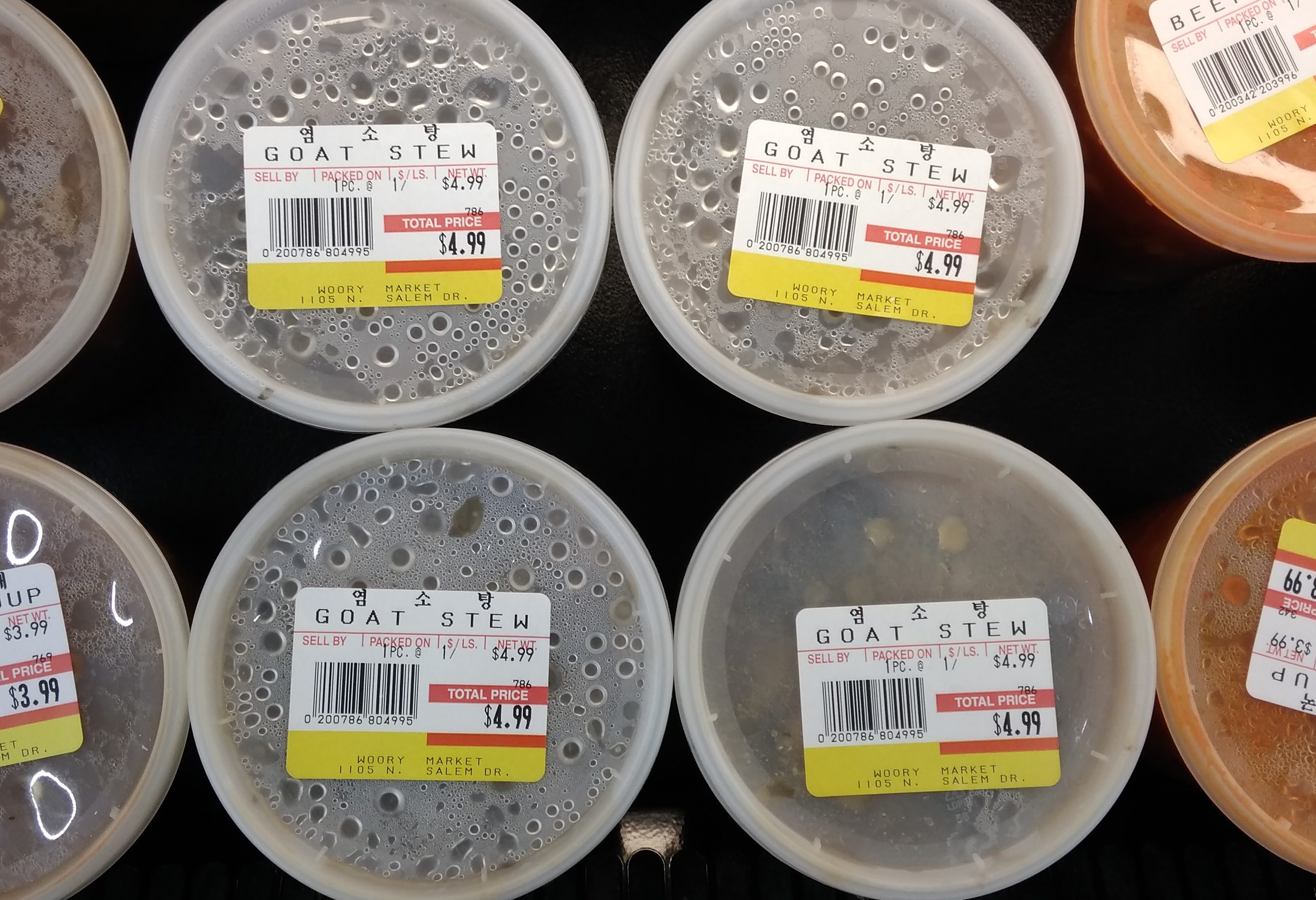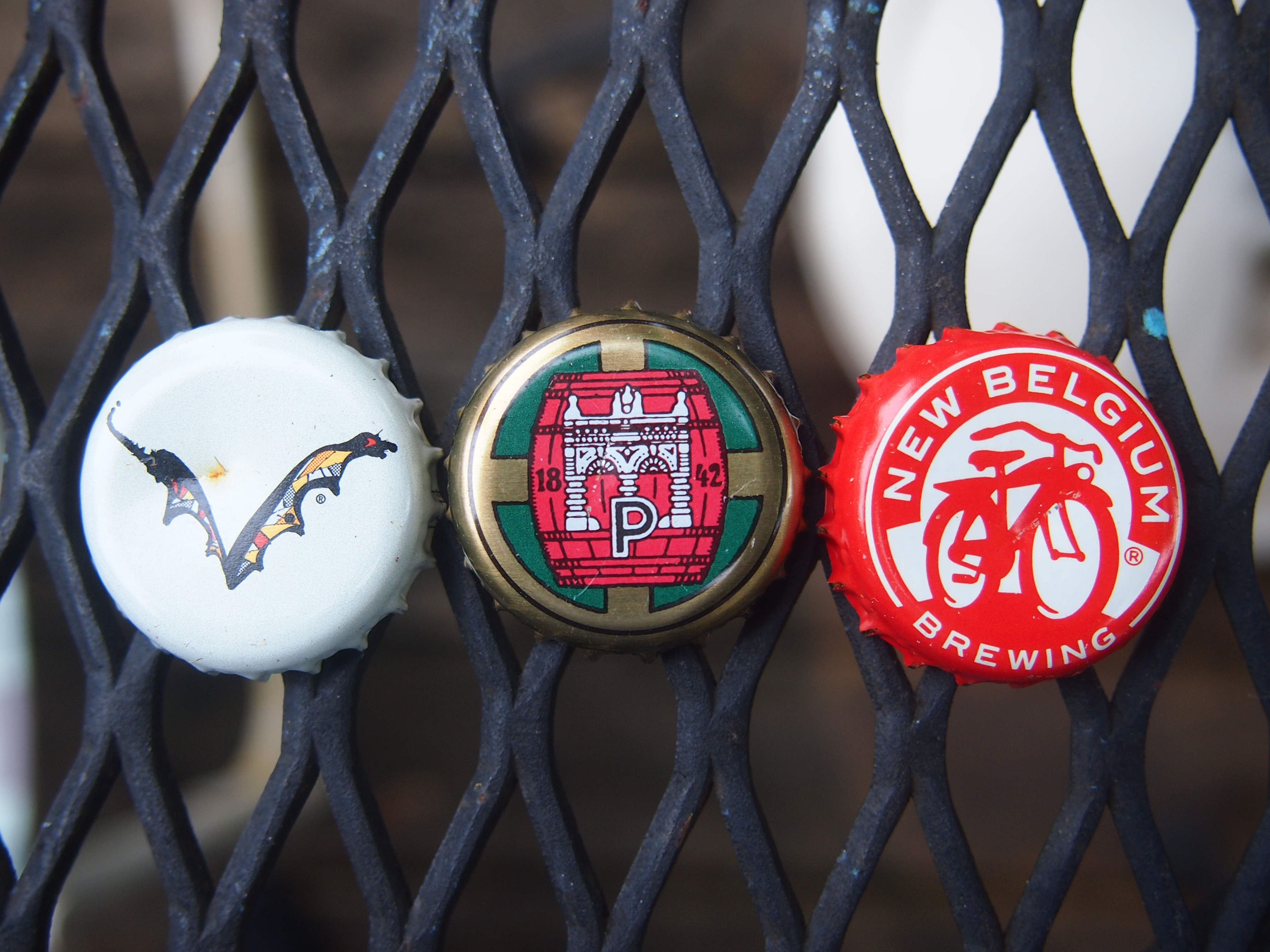Not long ago I had a pork cutlet at a Korean restaurant, done in the katsudon style I’ve encountered in Japanese restaurants and at home. This particular cutlet was remarkably large. So much so that I was inspired to take a picture.
 Large, but thin, so it wasn’t overfilling. Overall, quite good.
Large, but thin, so it wasn’t overfilling. Overall, quite good.
At an Asian grocery store the other day — Asian grocery stores are endlessly interesting — I saw this on offer.
I have to say I’m intrigued. People believe outdoor markets ought to be part of any visit to non-OECD cities, for that all-important authenticity and to see the locals, but if you really want authenticity, grocery stores are the place to go in any country. Ye shall know them by their grocery stores.
More debris from the Saturday grilling and gabfest.
The caps to the bottles I posted the other day, arranged in the same order.
I had a shandy over the weekend and later, during a moment when I had much else to do, naturally decided to look up the word, the story of which I didn’t know. I know more now, after reading this.
Shandy, a shortening of shandygaff, origin obscure. Now that’s a fine word. If I were a brewer, I’d use it for my shandies. Radler is a good word to know too.
Had a curry doughnut today. I don’t eat that many of them, but when I do I enjoy them.
“In Japanese bakeries of virtually every stripe, you can buy a thing called a curry doughnut,” I wrote once upon a time. “What a discovery that was. No part of it is sweet. Browned by frying on the outside, it’s soft on the inside, and a spicy brown curry resides at its core. An enormous amount of fat, I’m sure, and heartburn later on, but boy they’re good going down.
“My favorite spot for curry doughnuts used to be the Cascade Bakery, near the main promenade of Hanshin Station, Umeda, in the heart of Osaka. Even now, I can get one in Arlington Heights, Illinois, if I’m so inclined. I know at least two Japanese bakeries in that town that sell them. But it’s been a while.”
 I’ve been to only two Afghan restaurants that I remember. One was in New York City in 2005. The other was ca. 1987 in Chicago: The Helmand.
I’ve been to only two Afghan restaurants that I remember. One was in New York City in 2005. The other was ca. 1987 in Chicago: The Helmand.
Writing in 2005, I said: “I can remember visiting an Afghan restaurant only once before, about 20 years ago, a place on the North Side of Chicago near Belmont Blvd., long gone now. Much later I learned that it was owned by relatives of Mohammed [sic] Karzai. I vaguely remember it being exotically good.”
I have a matchbook from the place even now. Can you get matchbooks at restaurants any more? My experience is you can’t. In New York in March I experienced a brief and very minor moment of excitement when I picked up what I though was a small matchbox advertising a restaurant. Matches! Turned out to contain toothpicks.
Whatever happened to Hamid Karzai? Having managed to survive the Afghan presidency, no small thing, he seems to be living in comfortable semi-retirement after his career in peculation.


